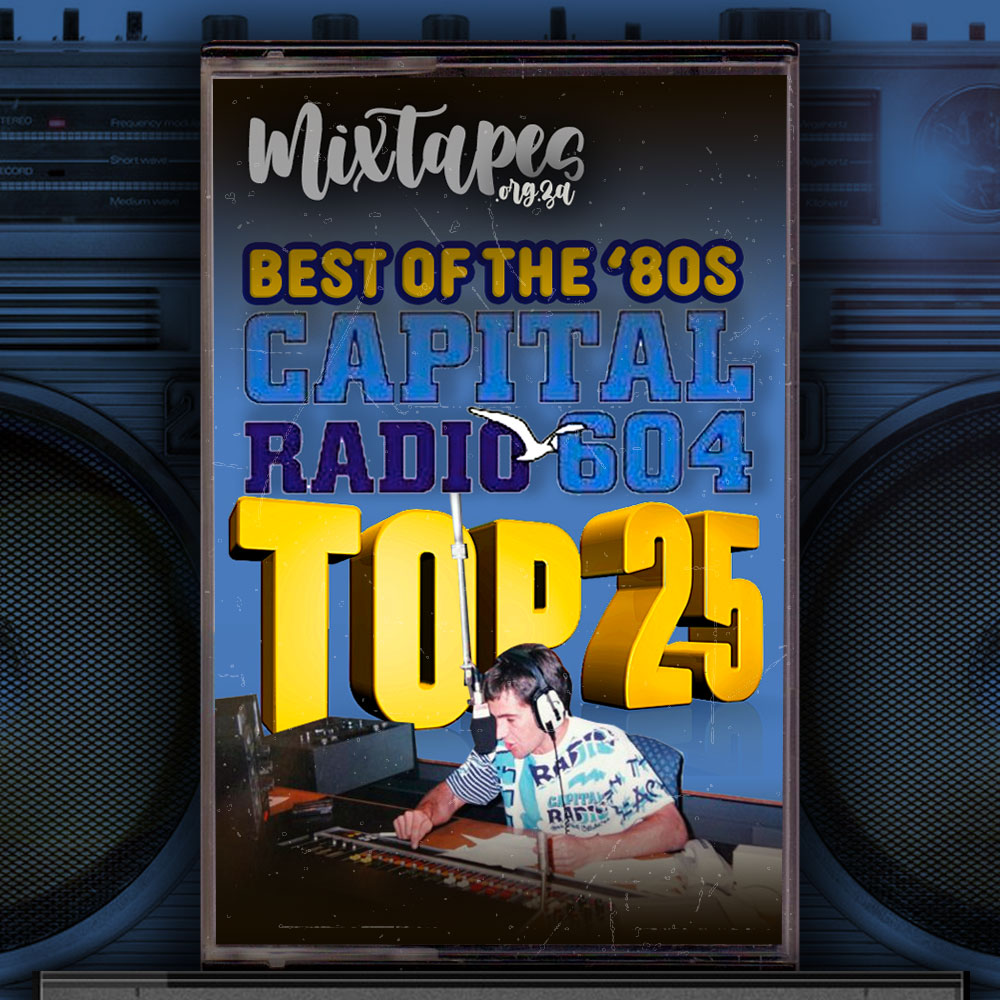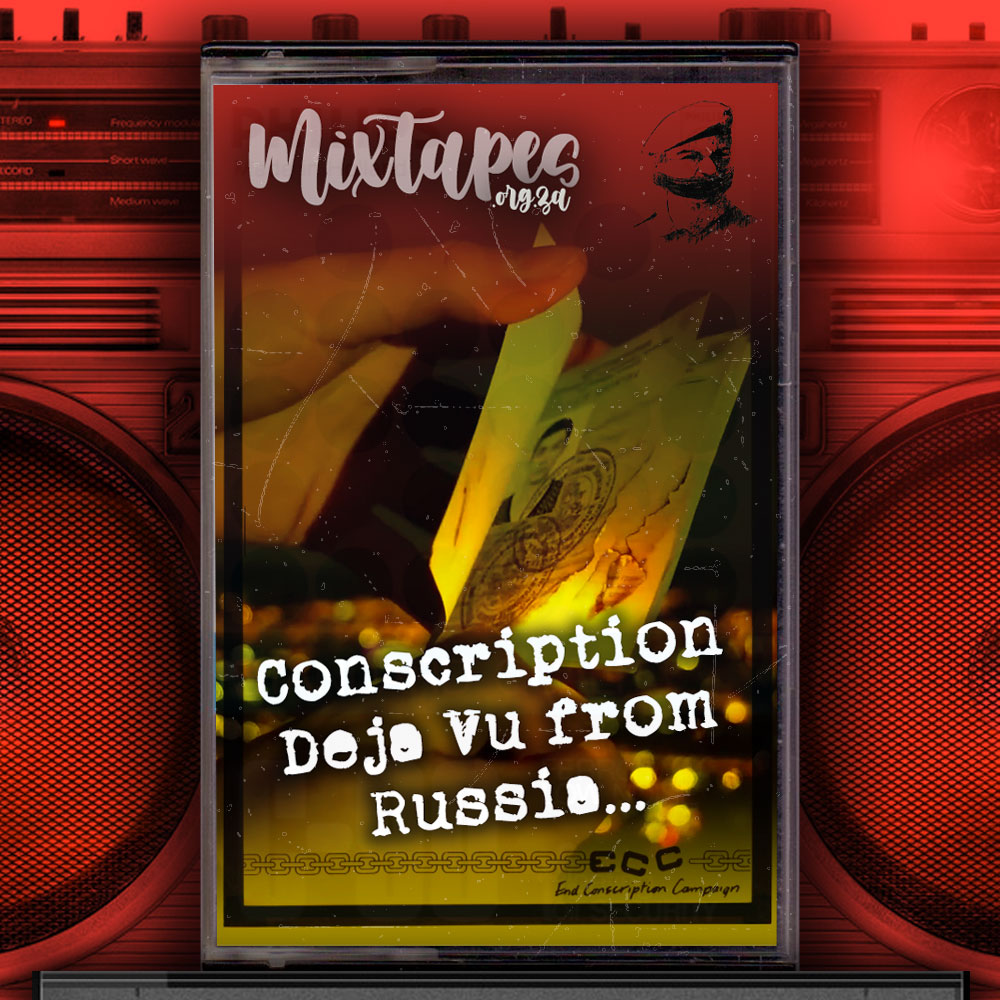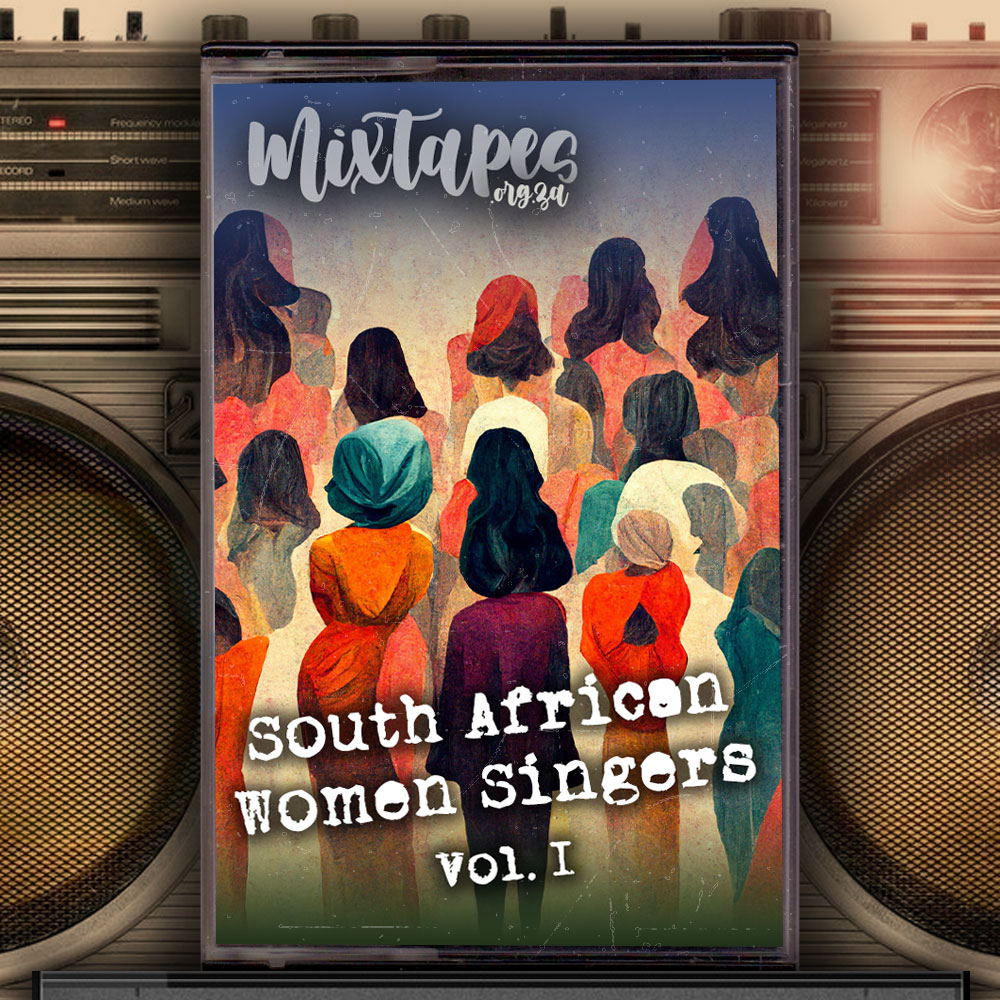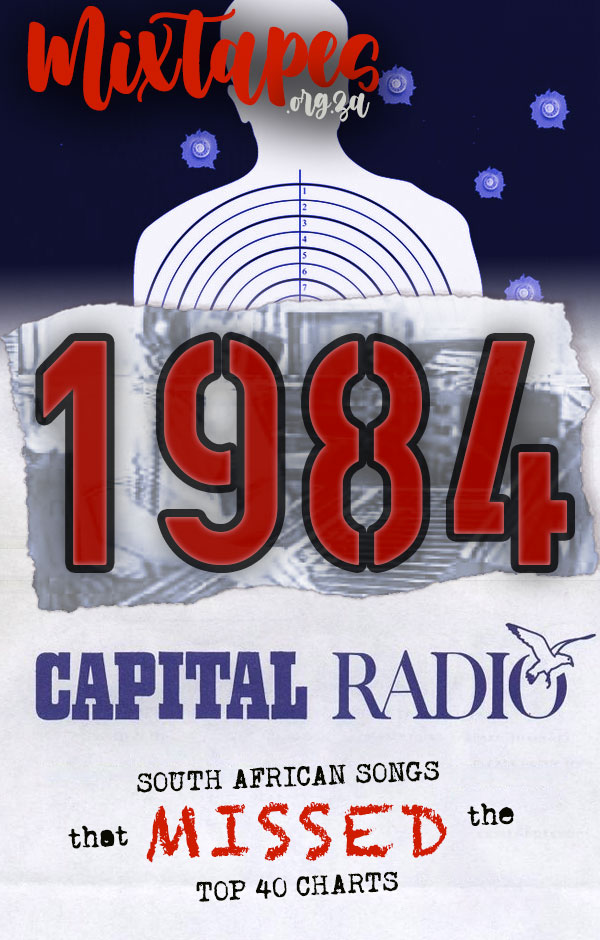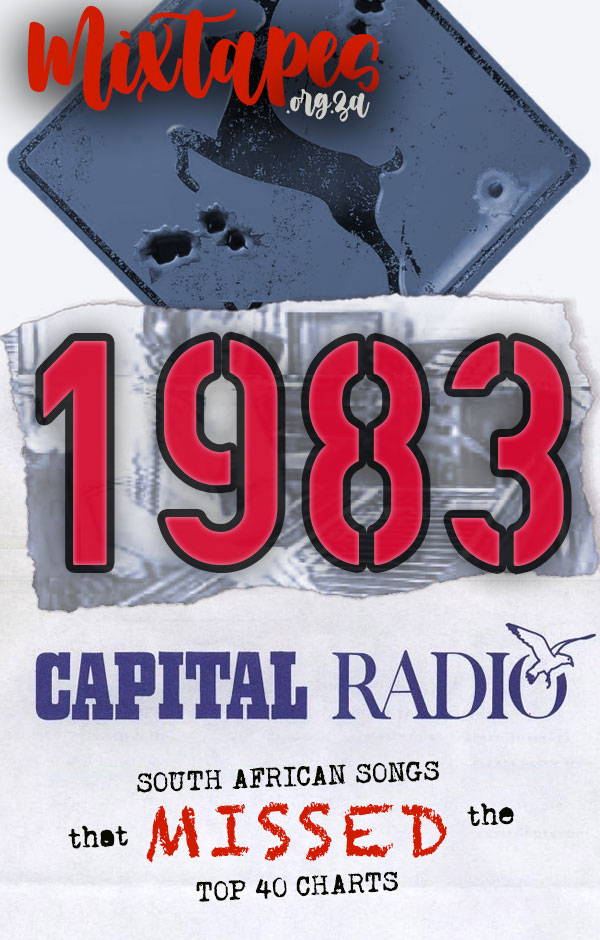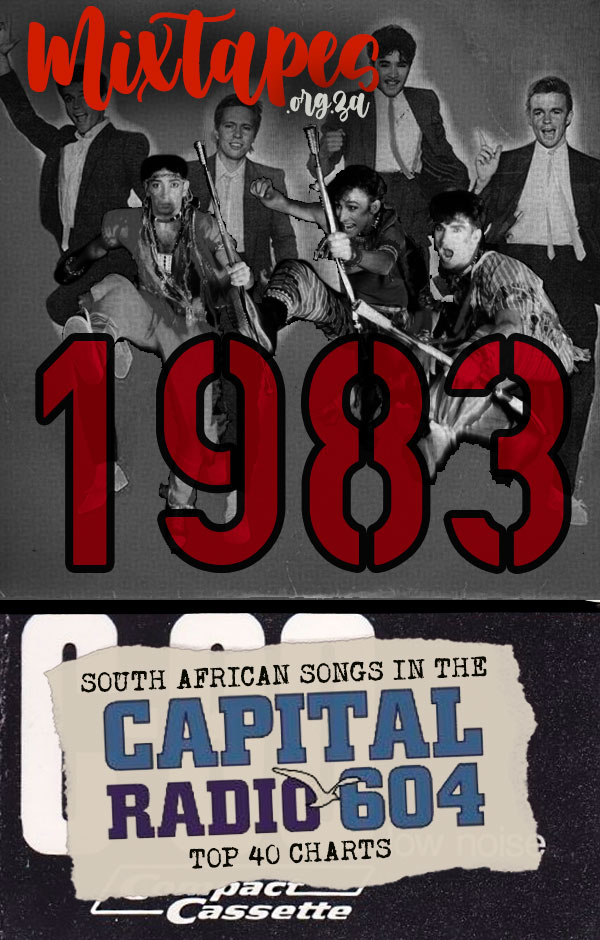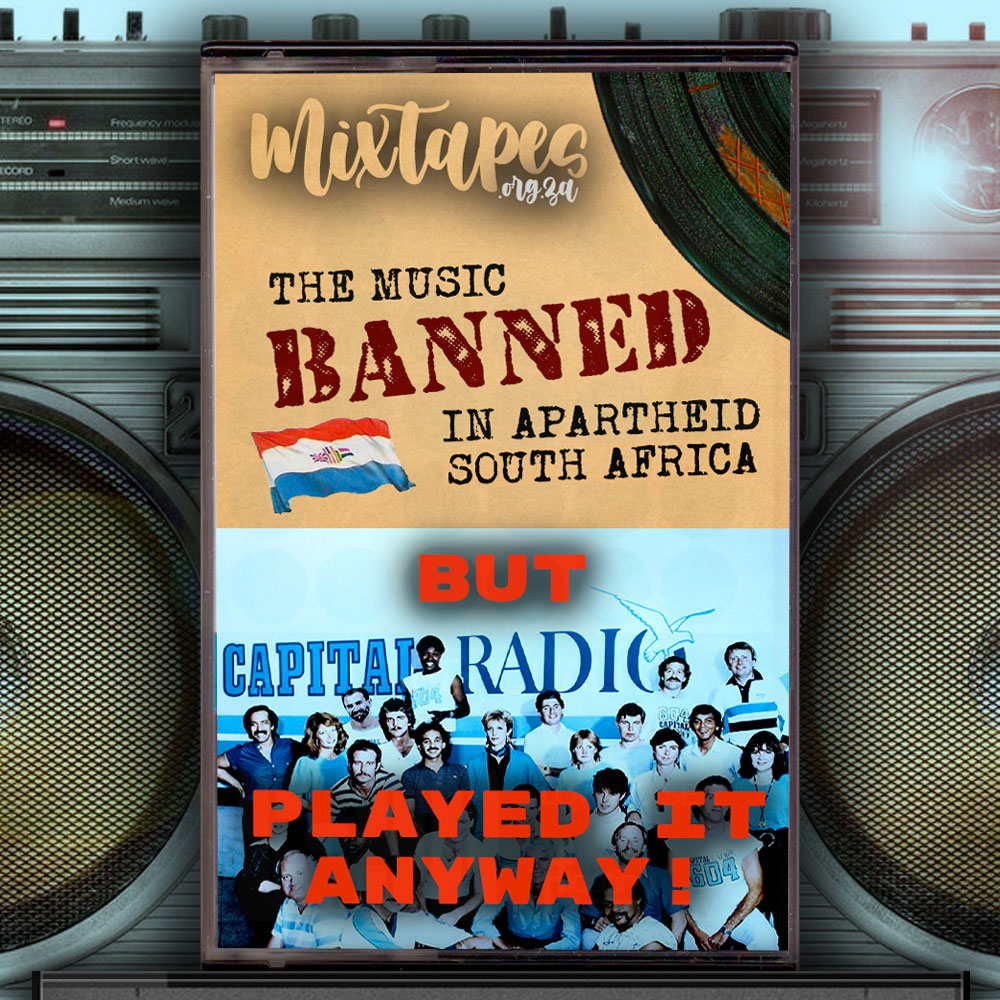
In the 1980s there were several songs which Capital Radio playlisted or at least played which were banned by the Directorate of Publications or ‘avoided’ by the South African Broadcasting Corporation (SABC). This week’s playlist includes 21 songs which capture a cross-section of issues the government did not want South Africans to hear, as it tried to foster a racially separated, religiously and morally conservative apartheid society.
For less than two decades, from late 1979 until 1996, independent radio station Capital Radio was to be heard over the South African airwaves. During the apartheid era it intentionally set out to be an alternative to apartheid government controlled SABC radio stations. The station broadcast from the Transkei Wild Coast, using the supposed independence of Transkei as a loophole to circumnavigate the Nationalist government’s tight control of South Africa’s airwaves. While Capital Radio was always foremost a commercial venture, it nevertheless forged a far more liberal path than the censorial and conservative apartheid SABC alternatives. This was especially seen in its liberal news reporting and its more liberal approach to the music it played and playlisted.
In South Africa official censorship took two forms: First, the Directorate of Publications was the official state censorship institution, banning thousands of publications every year: from books, magazines and pamphlets to objects, cassettes and vinyl records. Most of its attention focused on printed material but it nevertheless banned approximately 150 singles and albums between 1963 and 1992. Not all music was vetted, only music which was submitted in the form of a formal complaint. Second, the government broadcaster, the SABC practiced widespread censorship, vetting all music prior to possible airplay through its formal censorship committees. The SABC was far more severe than the Directorate of Publications, censoring thousands of songs if there was any suggestion that they might be controversial.
Both the Directorate of Publications and the SABC censored music for political, moral and religious reasons. This included songs that were directly anti-apartheid, which were rebellious, encouraged insurrection and protest in general or were anti-government in general as well as anything which was regarded as blasphemous, pro-Satanism, sexual, contained swearing and which promoted drug use. The SABC further censored songs if they mixed languages, which was against the apartheid state’s apartheid policy of separating the cultures of the country’s different ethnic groups.
Four of the songs on this mixtape were banned by the Directorate of Publications but played by Capital Radio:
On its very first day of broadcast Capital played Don McLean’s “American Pie” as its number 16 best song of all time: the Directorate of Publications banned the song because it viewed the song as blasphemous with lines like: “No angel born in hell could break that Satan’s spell; And as the flames climbed high into the night; To light the sacrificial rite, I saw Satan laughing with delight” and “The father, son and holy ghost, they caught the last train for the coast.”
Right from the start, Pink Floyd’s “Another Brick In The Wall” featured on the Capital Radio weekly Top 40 Countdown, including three weeks at number one in January-February 1980. It was indeed a huge hit in South Africa, also reaching the top of the charts on SABC’s Radio 5 and Springbok Radio. However, when the song had already sold 90 000 copies and dropped off all the charts it was banned by the Directorate of Publications, initially because of a complaint about the song encouraging communist-type rebellion among South African youth, but also because it had become a chant among township school children opposing inferior apartheid education for black (including coloured) South Africans. On the 3rd May 1980 the Rand Daily Mail reported that both Pink Floyd’s The Wall album and “Another Brick In The Wall” single had been banned in South Africa. However, a Capital Radio spokesperson noted that “Because Transkei had not banned the LP or the single South Africans will still hear them on Capital Radio.” Indeed, when all the SABC radio stations stopped playing the song, Capital continued to give it airtime, especially when listeners started to vote for it on the daily Capital Hitline, where it featured immediately after the ban.
In late 1981 Jimmy Cliff’s “Give The People What They Want” entered the Capital Radio charts and went on to spend two weeks at number one at the beginning of 1982. The SABC steered clear of the politically-charged song but this had not deterred Capital. The entire album went on to be banned by the Directorate of Publications in February 1982, while the title track was still being played on Capital.
On the 5th September 1987 George Michael’s “I Want Your Sex” went to number 1 on the Capital Countdown. It had already been ‘avoided’ by the SABC because it was regarded as promoting sexual promiscuity and was blasphemous (“I don’t need no bible”). The Directorate of Publications soon banned the song (in October 1987). The Publications Appeal Board decided to ban the song because it was seen to be “harmful to public morals in that it is likely to make a substantial number of teenagers between 14-16 more inclined to have sex or at least confuse them in deciding what is right and wrong. There is little doubt that the South African community is strongly against sex between school children and the Board believes that this recording, which clearly includes them as likely listeners, would be harmful to them in their moral development.”
Apart from Capital Radio playing songs that had been or went on to be banned by the Directorate of Publications the station regularly played songs which listeners would not be able to hear on rival Radio 5, Springbok Radio and regional SABC radio stations, even though the songs in question were legally available in record shops. The rest of the songs featured on this mixtape were not banned by the Directorate of Publications but were banned from airplay (‘avoided’) by the SABC:
The SABC banned all Beatles music from airplay after John Lennon’s March 1966 statement that the Beatles were “more popular than Jesus Christ”. Capital regularly played a variety of Beatles songs, including “Hey Jude” which featured high up on the Capital all time greats Hall of Fame charts, for example in 1984 it was number 2.
Another song that regularly featured on Capital’s all time Hall of Fame charts was Scott MacKenzie’s “San Francisco” which was avoided on SABC when it first came out. In 1960s South Africa, hippie lyrics such as “There’s a whole new generation with a new explanation” and “Summertime will be a love-in there” were far too shocking for conservative censors.
Whereas Capital DJs like Phil Wright occasionally played Ian Dury and the Blockhead’s “Sex And Drugs And Rock And Roll”, SABC DJs were not allowed that agency. The title alone was far too contentious, never mind lyrics such as “Sex and drugs and rock and roll is all my brain and body needs”.
The first South African song to become a number one hit on Capital Radio, Juluka’s “Africa”, was not played on Radio 5 because it mixed languages, which went against the SABC’s apartheid language purity policy. In addition, the lyrics referred to a song that could “heal these broken men.” And went on to say “Let us sing and we’ll walk through the dark, hand in hand, hand in hand”. It sounded all too suspicious to the SABC censors.
During 1980 and 1981 there were several South African songs that were playlisted on Capital which had been ‘avoided’ by the SABC:
“Just Another Ruler” by Roger Lucey was not played on the SABC (in fact none of his music was played on SABC) as part of the South African Police Security Branch’s attempt to silence Roger Lucey. For the SABC this song included political contentious lines such as “And just like June ’76 when you were so surprised, surprise again will grip you.”
“Schoolboy” by the Asylum Kids was viewed as too rebellious by the SABC censors who banned it from airplay because of lyrics such as “Rules and regulations only suffocate” and “Would you like to be a schoolboy again? No! No!”
Flash Harry’s satirical reggae protest song “No Football”, about not being able to play football on a Sunday, was avoided because it was viewed as blasphemous with lyrics like “More people watch me than go to church.” That line particularly met with the disapproval of the censors.
Falling Mirror’s “Crippled Messiah” wasn’t played by the SABC because it was also regarded as blasphemous.
On the 12th March 1982 “Sexual Healing” by Marvin Gaye peaked at number 3 on the Capital Countdown but was avoided by the SABC censors, afraid of the effect of lyrics such as “When I get this felling I need sexual healing” and “Don’t procrastinate, it’s not good to masturbate”.
“Hey Boy” by Via Afrika peaked at number 11 on the Capital Countdown on 11 June 1983, and stayed there for two weeks. The SABC avoided it because of its mildly critical view of someone in authority: “You blow your whistle … All they get from you is fares and stares … Hey listen boy, don’t waste my time”.
Donna Summer’s “Unconditional Love” peaked on the Capital Countdown at number 22 on the 10th and 17th December 1983. SABC avoided playing the song because it promoted Jah, including reference to a Rastafarian utopia: “We know a place where Jah’s people can run free; A new kind of love and we call it agape”.
In March 1985 the SABC banned all of Stevie Wonder’s music after he dedicated his Oscar Award to Nelson Mandela. However, according to a Rand Daily Mail article on 27 March 1985, Head of Music at Capital, Anthony Duke, said that the station would not adopt the same policy as the SABC because Capital did not have a political policy regarding music. Indeed Stevie Wonder’s “Lovelight In Flight” which had charted on the Capital Countdown in February and March continued to be playlisted. The SABC ended their ban on Stevie Wonder on the 19th September 1985 but during that time Capital continued to play his music.
“Private revolution” by World Party peaked on the Capital Countdown at number 21 on the 14th and 21st February 1987. This is a good example of the SABC’s paranoia about controversial words, in this case ‘revolution’. If the SABC censors had looked carefully at the words they would have seen that the song was about people saving the planet from ecological ruin by taking on a private revolution. In fact the lyrics even state, “You don’t have to do all those burning books, just revolutionize at home.”
A few months later in 1987, “Infected” by The The peaked at number 14 on the Capital Countdown, where it spent two weeks (on the 6th and 13th June). It was ‘avoided’ by the SABC presumably because they objected to the lines, “Will lies become truths in this face of fading youth from my scrotum to your womb, your cradle to my tomb’.
“(Something inside) – So strong” by Labi Siffre was an anti-apartheid song which peaked at number 18 on the Capital Countdown on the 11th July 1987. It included protest lyrics such as “The higher you build your barriers the taller I become; The further you take my rights away, the faster I will run.” It was viewed as threatening to the security of the apartheid state and avoided on SABC.
“Missing” by Johnny Clegg’s band Savuka reached number 8 on the Capital Countdown on the 31st October 1987. It was about apartheid government repression in South Africa and how someone the singer cares about has gone missing. It was regarded as a threat to the state by the SABC, and banned from airplay.
Roger Water’s “The Tide Is Turning” was a song critical about war for entertainment purposes but conversely in favour of positive potential of popular music and musicians, specifically written in relation to the Live Aid concert which took place in July 1985. It was playlisted on Capital Radio in late 1987. The SABC misunderstood what the turning tide referred to and decided not to play the song.
“After The War” by Gary Moore reached number 8 for two weeks on the Capital Countdown on the 15th and 22nd April 1989. The SABC decided to ban it from airplay because of its anti-conscription and anti-war tone, at a time when conscription was a legal requirement in South Africa. At the time the End Conscription Campaign was gaining popularity among white youth who questioned the apartheid government’s war against their fellow South Africans. Lyrics included the lines: “A letter from the draft board put pain to your all your dreams; You’re just another number in military schemes; They marched you in a uniform you wore against your will; With lies of hope and glory they taught you how to kill.”
